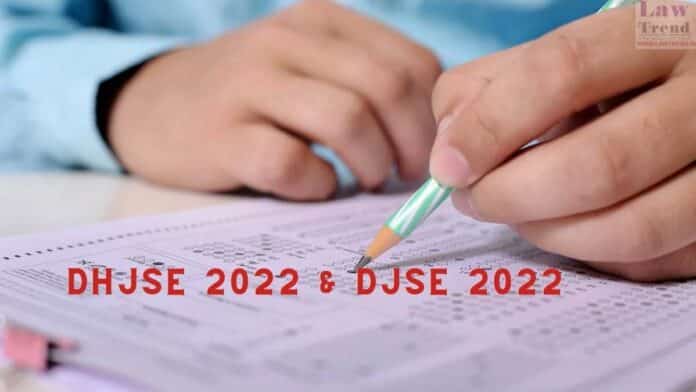The Delhi High Court Wednesday set aside a notice issued by its administrative side awarding additional marks in two papers of the Delhi Higher Judicial Services Mains (written) examination and ordered redrawing of the selection list of candidates.
A bench of Justices Vibhu Bakhru and Amit Mahajan said the Delhi Higher Judicial Services (DHJS) Rules expressly stipulate the qualifying marks and the Delhi High Court (DHC) (administrative side) has no discretion to alter the same in exercise of its statutory or administrative powers.
“The DHC is bound to include only those candidates in the list of qualified examinees who have secured the minimum threshold of 45 per cent marks in each paper. Undeniably, the DHC has the discretion as an examining authority to evolve the process for a fair evaluation and to determine whether the candidates have achieved the qualifying marks,” the bench said in a 51-page judgment.
It said, “In view of our conclusions that the award of additional marks in Law-III paper and in the General Knowledge and Language paper of the DHJS Mains (Written) Examination is unsustainable. The impugned notice dated October 13, 2022 is set aside. Consequently, the DHC is directed to redraw the selection list of candidates and take consequential steps.”
The verdict came on a petition challenging the October 13, 2022 notice by which the high court had awarded 01 (one) additional mark in Law-III paper and 0.5 (half) mark in the paper of General Knowledge and Language to all candidates who had appeared in the DHJS Mains (Written) Examination, 2022.
By virtue of the additional mark awarded in Law-III paper, three candidates qualified the exam and were called for viva voce, and out of them one was selected for joining the DHJS.
The petitioner claimed it is not open to the high court to award additional marks to candidates as it is contrary to the relevant rules and also affects the integrity of the selection process.
The bench noted that the examination committee of the high court did not recommend increasing the marks because it found that the marking was strict and required to be moderated.
The committee increased the marks to address the hardship of the candidates who had failed to clear the examination by one mark or less in any paper.
The bench termed as “misconceived” the contention of counsel representing the high court that it has the discretion to award marks by an administrative order in the absence of any explicit rules to the contrary.
“In the present case, the DHJS Rules expressly stipulate the qualifying marks and therefore, the DHC has no discretion to alter the same in exercise of its statutory or administrative powers. The DHC is bound to include only those candidates in the list of qualified examinees who have secured the minimum threshold of 45 per cent marks in each paper.
“Undeniably, the DHC has the discretion as an examining authority to evolve the process for a fair evaluation and to determine whether the candidates have achieved the qualifying mark,” it said.
The court said if it is found that the evaluation process is flawed or in any manner subverted, it will be open for the examining authority to take measures to rectify or to mitigate the impact of such flaw or deficiency.
However, the examining authority must come to the conclusion that the evaluation process is flawed, unfair, deficient or had not met the intended object of selection and any such flaw or deficiency can be remedied by normalisation or moderation of marks.
“If the DHC had found that the marking in certain paper was strict and therefore, excluded a large number of deserving candidates, it would be open for the DHC to take remedial measures and moderate the marks to compensate for the strict marking,” it said.
Also Read
Similarly, if it is found that any question was erroneous or incapable of being answered correctly, it will be open for the DHC to award additional marks to compensate for the marks lost by the examinees. But it is not open for an examining authority to simply award grace marks because some candidates had failed to achieve the qualifying criteria, the bench said.
It said the exercise of normalisation is required to be done prior to the declaration of the results.
“The DHC is not precluded from moderating or using the statistical device of scaling for the purpose of fair evaluation of all the candidates. However, it is impermissible for the high court to add marks merely for including certain disqualified candidates. The evaluation procedure must necessarily be to ensure a uniform and fair evaluation,” the bench said.




